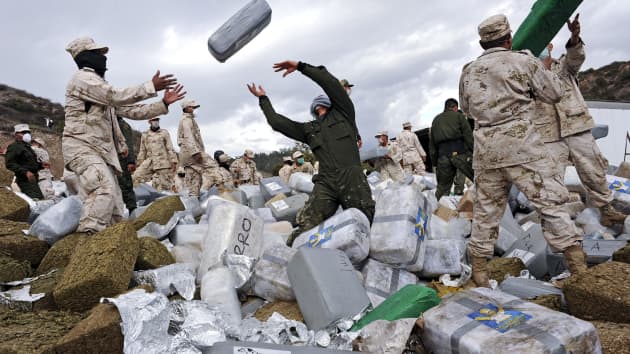
It seems that whoever said that nothing happens by accident, that political-sociological events always have an explanation and that opposites attract, is right. Assuming this saying is valid, I will address various aspects that are surely linked but whose outcome we still do not know; for example, the murder of Iranian leader Qassem Soleimani and Donald Trump’s threat to declare Mexican drug cartels as terrorist organizations.
It began with the strange news that shook the country on Oct. 17, 2019 about a forceful confrontation between members of the Mexican National Guard, the army, and members of the Sinaloa cartel.
The situation arose from federal plans to capture Ovidio Guzmán, one of El Chapo Guzmán’s children, a plan we later learned was due to a request by the United States to deport Ovidio Guzman. Those in charge of the operation were unsuccessful, to the disappointment of the American government.
Fifteen days later, another scandal overtook the one before it. Mennonite families were murdered in Chihuahua and Sonora, and no known motive has yet been determined. This resulted in a request for U.S. intervention, and Mexico demanded that, because Mexican drug cartels have committed numerous atrocious acts, the U.S. declare them to be terrorist organizations.
At that point, President Trump threatened to name members of the Mexican cartels as terrorists, and informed us that he had been reviewing the issue with his staff for 90 days. In the end, Trump postponed the discussion, but made it clear he felt the Mexican government could not manage the problem and offered help, warning Mexico that it would need it soon.
We don’t know why the U.S. government abruptly ceased pressuring Mexico. Less than a month later, the U.S. Ambassador to Mexico announced a meeting with Attorney General William Barr, who spoke with the highest Mexican authorities in charge of security. We know only of an official report, which probably does not describe the true nature of the negotiations.
Five days after the attorney general’s visit, Richard P. Donoghue, the U.S. attorney for the Eastern District of New York, announced the arrest of Genaro García Luna, former secretary of public security in Felipe Calderón’s administration. Could that have been the result of an agreement with Barr?
At nearly the same time, Anabel Hernández published “The Traitor,” in which she disclosed that Ismael “El Mayo” Zambada was the real head of the Sinaloa cartel, and that all former PRI and PAN governments had negotiated with and protected him. The message of the book is clear: Andrés Manuel López Obrador’s administration must catch “El Mayo” if it wants to distinguish itself from all previous governments; if not, Hernández will take care to remind us.
Subsequently, the U.S. government murdered Iran’s envoy for Iraqi affairs, Qassem Soleimani, following President Trump’s order classifying the Islamic Revolutionary Guard Corps as a terrorist organization in April 2019. This incident showed the world the advanced technology that allowed the U.S. to kill a person with great precision over long distances.
If we combine all of these separate incidents, one can imagine a situation in the near future where the U.S. government names Mexican drug trafficking mafias as terrorists and kills some of their drug lords with the same technology and precision and in the same way it killed the Iranian leader. How would most Mexicans feel about that?

Leave a Reply
You must be logged in to post a comment.